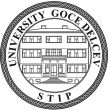Alevi - Bektashi Belief in Balkans: A Historical Legacy
Abstract
With increased immigration, Islam has become a considerable element affecting the relatively homogeneous religious structure of Europe. However, for the Balkan region, instead of immigration flows, historical legacy possessed an important role with respect to Islamic characteristic. With the rise of the Ottoman Empire, Islam spread to the Balkans with significant Alevi-Bektashi characteristics due to the important role of Janissaries who were associated with the Dervish Lodge of Haji Bektash Veli in Ottoman political and military structures. Therefore, it would not be wrong to claim that Alevi-Bektashi belief had pivotal role in the composition of the religious heritage of Islam in the Balkans; although, it is generally linked with Anatolian region. Today, this belief is being protected as one of the contributors to the historical legacy of religious diversity with functioning dervish lodges and shrines, or gatherings around ruins.
This paper will examine the history and the role of Alevi-Bektashi belief within Islamic faith in and its reflections to Muslim societies of the Balkans in order to understand the contribution of this syncretic belief to religious diversity in Europe as a historical legacy.
Keywords: Alevism, Bektashism, Balkans, Islam.Downloads
References
Abiva, H. (n.d.). A Glimpse at Sufism in the Balkans. Retrieved July 10, 2015 from http://www.alevibektasi.eu/index.php?option=com_content&view=category&layout=blog&id=46&Itemid=69.
Aksoy, İ. (2002). Cumhuriyet Döneminde Alevilik. In İ. Bahadır (Ed.), Osmanlı ve Cumhuriyet Döneminde Alevi Tarih ve Kültürü (pp. 240-267). Bielefeld: Bielefeld Alevi Kültür Merkezi Yayınları.
Aslan. G. (2012, July). Pir Sultan’dan Demir Baba’ya. Retrieved from http://www.alevihaberajansi.com/index.php?option=com_content&task=view&id=12378&Itemid=45.
Aydın, A. (n.d.) Bulgaristan’da Alevilik/Bektaşilik Üzerine Bir Söyleşi. Retrieved February 20, 2014 from Cem Vakfı website, http://www.cemvakfi.org.tr/balkanlarda-alevilik-bektasilik/ahmet-hezarfenle-balkanlarda-alevilik-bektasilik-uzerine-bir-soylesi/ .
Azak, U. (2010). Islam and Secularism in Turkey: Kemalism, Religion and the Nation State. New York, NY: I.B. Tauris & Co. Ltd.
Bahadır, İ. (2002). Cumhuriyet’in Kuruluş Sürecinde Atatürk ve Aleviler. In İ. Bahadır (Ed.), Osmanlı ve Cumhuriyet Döneminde Alevi Tarih ve Kültürü (pp. 166-239). Bielefeld: Bielefeld Alevi Kültür Merkezi Yayınları.
Bahadır, İ. (2010). Hacı Bektaş Veli Tekkesi’nin Dini Merkez Olarak Yükselme Süreci. In P. Ecevitoğlu, A. M. İrat, & Ayhan Yalçınkaya (Eds.), Hacı BektaşVeli: Güneşte Zerresinden. Deryada Katresinden (pp. 223-247). Ankara: Dipnot Yayınları.
Bakırcı, N., & Türkan, H.K. (2013). Tekke ve Zaviyelerin Balkanlardaki Rolü Önemi. Türük Dil, Edebiyat ve Halkbilimi Araştırmaları Dergisi, 1, 145-160.
Balkız, A. (1999) Sivas’tan Sydney’e Aleviler. Ankara: İtalik Kitaplar.
Barkan, Ö. L. (1942). İstila Devirlerinin Kolonizatör Türk Dervişleri ve Zaviyeler. Vakıflar Dergisi, 2, 279-304.
Birge, J. K. (1996). The Bektashi Order of Dervishes. London: Luzac Oriental.
Buechsenschuetz, U. (2002, August 6). Balkan Report. Retrieved from http://www.rferl.org/content/article/1341076.html.
Clayer, N. (1996). La Bektachiyya. In A. Popovic & G. Veinstein (Eds.) Les Voies d’Allah : Les Ordres Mystiques Dans le Monde Musulman des Origines à Nos Jours (pp. 468-474). Paris: Fayard.
Clayer, N. (1997). Islam, State and Society in Post-Communist Albania. In H. Poulton & S. Taji-Farouki (Eds.), Muslim Identity and the Balkan State (pp.115-138). London: Hurst.
Erdoğan, E. (2000). Alevi-Bektaşi Gerçeği: İslamiyetin, Türkmen töreselliği içinde özümlenerek Anadolulaşması. İstanbul: ALFA.
Eyüboğlu, İ. Z. (1989). Alevilik-Sünnilik- İslam Düşüncesi. İstanbul: Der Yayınları.
Faroqhi, S. (1976). The Tekke of Haci Bektas: Social Position and Economic Activities. Journal of Middle East Studies, 7(2), 183-208.
Georgievski, B. (June 3, 2013). Conflict Among Islamic Believers. Retrieved from http://www.islamicpluralism.org/2243/conflict-among-islamic-believers.
Gölpınarlı, A. (1995). Vilayet-Name. İstanbul: İnkılap Kitabevi.
Günümüzde Bulgaristan’da Alevilik ve Bektaşilik (2011). Retrieved from the University of Inönü website, http://www.inonu.edu.tr/
Hacı Bektaş Veli Müzesi (n.d.). Retrieved August 24, 2015 from T.C. Hacıbektaş Kaymakamlığı website http://www.hacibektas.gov.tr/default_B0.aspx?content=1010.
Hacı Bektaş Veli Anadolu Kültür Vakfı. (2005). Alevi Tören ve Ritüelleri Cem Cenaze Kurban (1st ed.). Ankara: Akademi Matbaası.
Hasluck, F.W. (1973). Christianity and Islam Under the Sultans. New York, NY: Hippocrene Books.
Hür, A. (2013, June 30). İttihatçı ve Kemalistlerin Alevi-Bektaşi Politikaları. Radikal. Retrieved from http://www.radikal.com.tr/.
İlçemiz (n.d.) Retrieved January 19, 2014, from T.C. Hacıbektaş Kaymakamlığı website, http://www.hacibektas.gov.tr/default_B0.aspx?content=199.
International Religious Freedom Report (2007). Retrieved from U.S. Department of State website, http://www.state.gov/j/drl/rls/irf/2007/90160.htm.
İzeti, M. (2005). Arnavutlar ve Bektaşilik. In H. Küçük (Ed.), Uluslar Arası Bektaşilik ve Alevilik Sempozyumu I – Bildiriler ve Müzakereler (pp. 517-525). Isparta: SDÜ İlahiyat Fakültesi Yayınları.
Kökel, C. (2007). Sarı Saltık ve Balkanlarda Alevi, Bektaşi Kültürü. Türk Kültürü ve Hacı Bektaş Velî Araştırma Dergisi, 43, n.p. Retrieved from http://www.hbvdergisi.gazi.edu.tr.
Kressing, F. (2002). A Preliminary Account of Research Regarding the Albanian Bektashis – Myths and Unsolved Questions. In K. Kaser & F. Kressing (Eds.), Albania – A country in transition. Aspects of changing identities in a south-east European country (pp. 65-92). Baden-Baden: Nomos.
Küçük, M. (2010). Günümüz Balkan Bektasiligi, Güncel Durum, Gelismeler, Sorunlar. In P. Ecevitoğlu, A. M. İrat, & Ayhan Yalçınkaya (Eds.), Hacı BektaşVeli: Güneşte Zerresinden. Deryada Katresinden (pp. 310-335). Ankara: Dipnot Yayınları.
Malcolm, N. (1998). Kosovo: A Short History. New York, NY: New York University Press.
Mélikoff, I. (1998). Bektashi/Kizilbas: Historical Bipartition and Its Consequences. In T. Olsson, E. Özdalga & C. Raudvere (Eds.), Alevi Identity: Cultural, Religious and Social Perspectives (pp. 1-7) Istanbul: Swedish Research Institute in Istanbul.
Mélikoff, I. (1998, May 27). Alevi İslamcı Olamaz. Milliyet. Retrieved from http://www.milliyet.com.tr/.
Mélikoff, I. (2006). Uyur İdik Uyardılar (T. Alptekin, Trans.). Istanbul: Demos Yayınları.
Minorities in Southeast Europe – Bektashis of Albania. (2000, September). Center for Documentation and Information on Minorities in Europe - Southeast Europe. Retrieved July 20, 2015 from http://www.greekhelsinki.gr.
Minorities in Southeast Europe – Muslims of Macedonia (n.d.). Center for Documentation and Information on Minorities in Europe - Southeast Europe. Retrieved July 20, 2015 from http://www.greekhelsinki.gr.
Schwartz, S. (2010, November). The Heritage of Ottoman Islam in Balkans. Retrieved from http://www.islamicpluralism.org/1663/the-heritage-of-ottoman-islam-in-the-balkans.
Semah, Alevi-Bektaşi Ritual (2010). Retrieved from UNESCO website, http://www.unesco.org/culture/ich/doc/download.php?versionID=07301.
Semah, Alevi-Bektaşi Ritual (2010). Retrieved from UNESCO website, http://www.unesco.org/culture/ich/index.php?lg=en&pg=00011&RL=00384.
Shindeldecker, J. (1996). Turkish Alevis Today. Istanbul: Şahkulu Sultan Külliyesi Vakfı Yayınları.
Togral, Ö. (2013). Balkanlarda Bektaşi Geleneği Dergah ve Tekkeleri. In E. Aşçı, O. Gezer, M. Sargın, & F. Demir (Eds.), Gelecek Geçmişi Tartışıyor (pp. 268-276). Isparta: SDÜ Yayınları.
Tol, U. U. (2007). Ayrımcılık ve Alevilik. In C. Korkmaz (Ed.), Aleviler Ayrımcılık ve İnsan Hakları (pp. 40-59). Ankara: Akademi Matbaası.
Yücel, E. (1975). Türk Sanatında Alem. Türkiyemiz, 16, 35-36.
Permissions
Authors are expected to obtain permission from copyright holders for reproducing any illustrations, tables, figures or lengthy quotations previously published elsewhere. BSSR will not be held accountable for any copyright infringement caused by the authors.
Copyright
The content offered in the BSSR remains the intellectual property of the authors and their publishers respectively. University “Goce Delcev”- Shtip, R. Macedonia and BSSR keap the right to promote and re-publish the texts.



